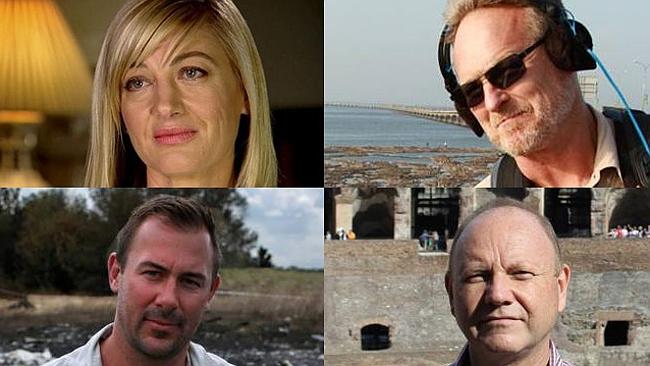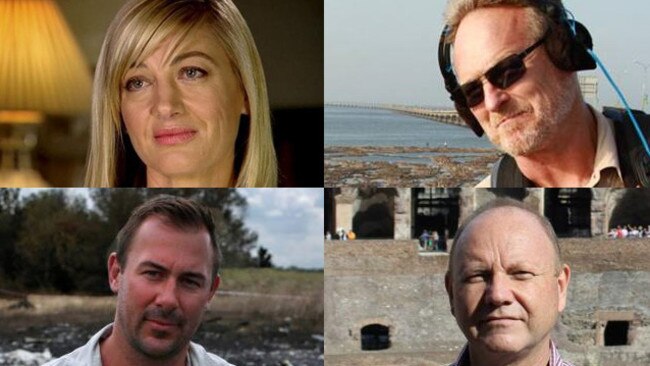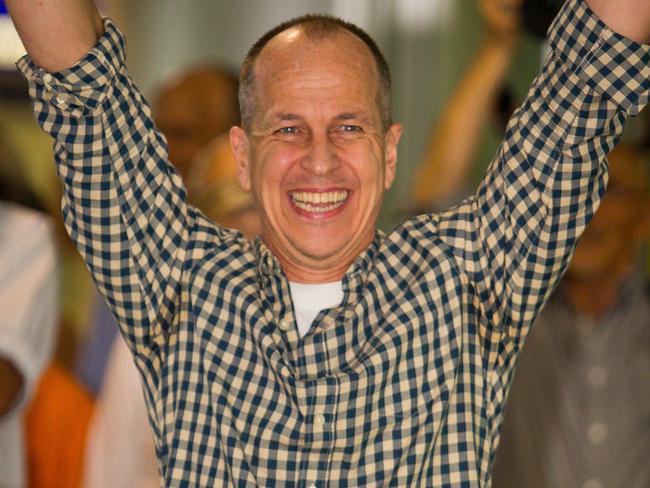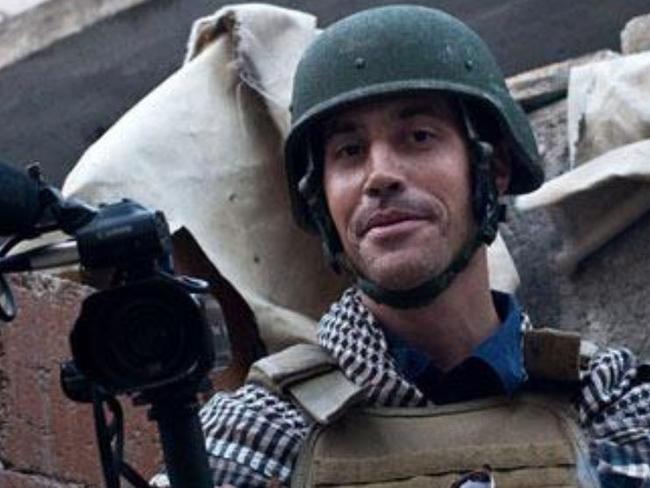Why journalists are commonly jailed
THE plight of Tara Brown and the 60 Minutes crew has captivated the nation, but journalists being jailed is not uncommon.

THOUGH the plight of Tara Brown and the 60 Minutes crew jailed in Lebanon is quickly building as one of the biggest news stories of the year, journalists being detained, particularly on international assignments, is not uncommon.
At the end of 2015, the number of journalists imprisoned for their work around the world stood at 199.
Australian Al Jazeera journalist Peter Greste, former age editor Alan Morison, and Islamic State victim James Foley are just some of the memorable cases of scribes in strife in recent years.
Just last month, a Four Corners crew was detained in Malaysia while trying to question Prime Minister Najib Razak over a corruption scandal.
But while each case is different, and the current 60 Minutes crew’s situation particularly contentious, there are some major risks and common reasons journalists are frequently found behind bars.
Curtin University’s head of journalism Dr Joseph Fernandez says any journalists having to work in a foreign land carries some level of risk.
“The risk may be foreseeable. It may not be foreseeable,” he told news.com.au.
“Journalists must go to such places with eyes wide open, and employers of such journalists have a heavy responsibility not to expose their staff to unacceptable danger.”
Dr Fernandez says that even when those responsibilities are considered and a proper risk assessment is undertaken, it is possible for journalists or broadcast crews to run in trouble with the law.
He said in some cases, journalists pay the price of practising journalism as we know it in the free world “in a freedom of expression danger zone”.
“They ran foul of local law that did not prioritise freedom of expressions,” he said of some cases.

In others, journalists may not be fully aware of or compliant with local law, and not fully competent in journalism. Others still may find trouble in a zone that is inherently dangerous because it is “an epicentre of conflict” or simply by breaking serious laws, Dr Fernandez explained.
While the 60 Minutes case is unique, it shared components of other situations where journalists have fall foul of the law, or worse, while doing their jobs.
Here’s what happened in some of those cases:
PETER GRESTE
Australian journalist Peter Greste spent 400 days in jail alongside Al Jazeera English colleagues Mohamed Fadel Fahmy and Baher Mohamed.
The trio was sentenced to seven years incarceration by Egyptian authorities accused of news reporting that was “damaging to national security”.
The journalists were accused of falsifying information that had made the country look bad.
Greste was eventually deported to Australia avoiding further prison time, and his colleagues were pardoned by the Egyptian president last September.

ALAN MORRISON
Veteran journalist and former The Age editor Alan Morison was last year facing up to seven years jail for defaming the Thai navy in his online publication in Thailand, Phuketwan.
Mr Morison and colleague Chutima Sidasathian had published an article on their news website in 2013, originally authored by news agency Reuters, that the Navy alleged contained defamatory content.
The pair were acquitted in front of a packed courtroom, with Morison saying the judgment sent “a clear message from Thailand’s judicial system that Thailand’s media should be free”.
JAMES FOLEY
American journalist and video reporter James Foley was captured by Islamic State while working as a freelance war correspondent during the Syrian Civil War.
In an example of a journalist running into trouble in an area that is “inherently dangerous because it is an epicentre of conflict”, as Dr Fernandez describes, Mr Foley was working in the pursuit of journalism in a very risky place.
After being kidnapped in 2012, the former GlobalPost reporter was held until his 2014 beheading.

BALIBO FIVE
In 1975, a group of Australian television journalists was killed during the Indonesian Invasion of East Timor.
Though the Indonesian government has claimed the men were killed in crossfire, an Australian coroner decided in 2007 they had been deliberately killed by Indonesian special force soldiers.
Reporters Greg Shackleton and Malcolm Rennie, cameraman Gary Cunningham and Brian Peters, and sound recordist Gary Cunningham, all believed they would not be considered military targets.
60 MINUTES
Reporter Tara Brown, producer Stephen Rice, cameraman Ben Williamson and sound recordist David Ballment are all awaiting trial in a Lebanese prison following the botched retrieval of a Brisbane woman, Sally Faulkner’s, two children.
Ms Faulkner is also being detained and all are facing serious charges including kidnapping.
Though the case shares common features with other examples of journalists in detention, Dr Fernandez says there are distinct differences as well.
“I thinks here’s bee n a blurring of lines between the journalistic pursuit, and on the other side, the ratings chase,” he said.
“clearly this was not pure journalist at work. I think the line was clearly almost crossed from a journalistic pursuit into the domain of entertainment and adventure.”
Dr Fernandez says that the mission was “inherently dangerous” on “so many levels”.

“It involved kidnap, abduction, the use of mercenaries, and as it turned out possibly even assault. The evaluation of risk should have covered both, ethical and legal risks,” he said.
“It is one thing to say that it is justifiable to reunite a distraught mother with her children and conduct the analysis from that perspective alone. It is another to evaluate the issue by looking at it from all angles — from the degree of risk involved to the journalists, to the children, to the affected family members and others caught in the event.”
Channel 9 has so far been reluctant to comment on its level of involvement in the “child recovery” operation and the risk assessment involved in the assignment.
On its 60 Minutes broadcast tonight, the network said, through reporter Ross Coulthart, it was “working relentlessly” to bring the team home.



